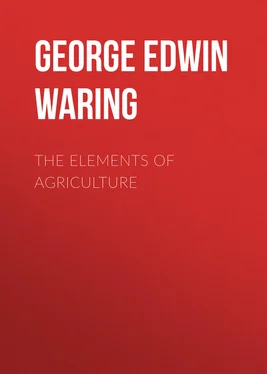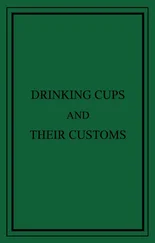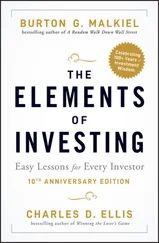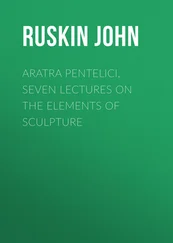George Edwin Waring - The Elements of Agriculture
Здесь есть возможность читать онлайн «George Edwin Waring - The Elements of Agriculture» — ознакомительный отрывок электронной книги совершенно бесплатно, а после прочтения отрывка купить полную версию. В некоторых случаях можно слушать аудио, скачать через торрент в формате fb2 и присутствует краткое содержание. Жанр: foreign_prose, Биология, foreign_edu, foreign_antique, на английском языке. Описание произведения, (предисловие) а так же отзывы посетителей доступны на портале библиотеки ЛибКат.
- Название:The Elements of Agriculture
- Автор:
- Жанр:
- Год:неизвестен
- ISBN:нет данных
- Рейтинг книги:3 / 5. Голосов: 1
-
Избранное:Добавить в избранное
- Отзывы:
-
Ваша оценка:
- 60
- 1
- 2
- 3
- 4
- 5
The Elements of Agriculture: краткое содержание, описание и аннотация
Предлагаем к чтению аннотацию, описание, краткое содержание или предисловие (зависит от того, что написал сам автор книги «The Elements of Agriculture»). Если вы не нашли необходимую информацию о книге — напишите в комментариях, мы постараемся отыскать её.
The Elements of Agriculture — читать онлайн ознакомительный отрывок
Ниже представлен текст книги, разбитый по страницам. Система сохранения места последней прочитанной страницы, позволяет с удобством читать онлайн бесплатно книгу «The Elements of Agriculture», без необходимости каждый раз заново искать на чём Вы остановились. Поставьте закладку, и сможете в любой момент перейти на страницу, на которой закончили чтение.
Интервал:
Закладка:
George E. Waring
The Elements of Agriculture / A Book for Young Farmers, with Questions Prepared for the Use of Schools
ELEMENTS
OF
AGRICULTURE
Extract from a letter to the author from Prof. Mapes, editor of the Working Farmer :
* * * "After a perusal of your manuscript, I feel authorized in assuring you that, for the use of young farmers, and schools, your book is superior to any other elementary work extant. JAMES J. MAPES."
Letter from the Editor of the N. Y. Tribune:
My Friend Waring,
If all who need the information given in your Elements of Agriculture will confess their ignorance as frankly as I do, and seek to dispel it as promptly and heartily, you will have done a vast amount of good by writing it. * * * * * I have found in every chapter important truths, which I, as a would-be-farmer, needed to know, yet which I did not know, or had but a confused and glimmering consciousness of, before I read your lucid and straightforward exposition of the bases of Agriculture as a science. I would not have my son grow up as ignorant of these truths as I did for many times the price of your book; and, I believe, a copy of that book in every family in the Union, would speedily add at least ten per cent. per acre to the aggregate product of our soil, beside doing much to stem and reverse the current which now sets so strongly away from the plow and the scythe toward the counter and the office. Trusting that your labors will be widely regarded and appreciated,
I remain yours truly,
HORACE GREELEY.New York, June 23, 1854.
TO THE STUDENT
This book is presented to you, not as a work of science, nor as a dry, chemical treatise, but as a plain statement of the more simple operations by which nature produces many results, so common to our observation, that we are thoughtless of their origin. On these results depend the existence of man and the lower animals. No man should be ignorant of their production.
In the early prosecution of the study, you will find, perhaps, nothing to relieve its tediousness; but, when the foundation of agricultural knowledge is laid in your mind so thoroughly that you know the character and use of every stone, then may your thoughts build on it fabrics of such varied construction, and so varied in their uses, that there will be opened to you a new world, even more wonderful and more beautiful than the outward world, which exhibits itself to the senses. Thus may you live two lives, each assisting in the enjoyment of the other.
But you may ask the practical use of this. "The world is made up of little things," saith the proverb. So with the productive arts. The steam engine consists of many parts, each part being itself composed of atoms too minute to be detected by our observation. The earth itself, in all its solidity and life, consists entirely of atoms too small to be perceived by the naked eye, each visible particle being an aggregation of thousands of constituent elements. The crop of wheat, which the farmer raises by his labor, and sells for money, is produced by a combination of particles equally small. They are not mysteriously combined, nor irregularly, but each atom is taken from its place of deposit, and carried to its required location in the living plant, by laws as certain as those which regulate the motion of the engine, or the revolutions of the earth.
It is the business of the practical farmer to put together these materials, with the assistance of nature. He may learn her ways, assist her action, and succeed; or he may remain ignorant of her operations, often counteract her beneficial influences, and often fail.
A knowledge of the inner world of material things about us will produce pleasure to the thoughtful, and profit to the practical.
SECTION FIRST.
THE PLANT
CHAPTER I
What is the object of cultivating the soil?
What is necessary in order to cultivate with economy?
Are plants created from nothing?
The object of cultivating the soil is to raise from it a crop of plants . In order to cultivate with economy, we must raise the largest possible quantity with the least expense, and without permanent injury to the soil .
Before this can be done we must study the character of plants, and learn their exact composition. They are not created by a mysterious power, they are merely made up of matters already in existence. They take up water containing food and other matters, and discharge from their roots those substances that are not required for their growth. It is necessary for us to know what kind of matter is required as food for the plant, and where this is to be obtained, which we can learn only through such means as shall separate the elements of which plants are composed; in other words, we must take them apart , and examine the different pieces of which they are formed.
What must we do to learn the composition of plants?
What takes place when vegetable matter is burned?
What do we call the two divisions produced by burning?
Where does organic matter originate? Inorganic?
How much of chemistry should farmers know?
If we burn any vegetable substance it disappears, except a small quantity of earthy matter, which we call ashes . In this way we make an important division in the constituents of plants. One portion dissipates into the atmosphere, and the other remains as ashes.
That part which burns away during combustion is called organic matter ; the ashes are called inorganic matter . The organic matter has become air, and hence we conclude that it was originally obtained from air. The inorganic matter has become earth, and was obtained from the soil.
This knowledge can do us no good except by the assistance of chemistry, which explains the properties of each part, and teaches us where it is to be found. It is not necessary for farmers to become chemists. All that is required is, that they should know enough of chemistry to understand the nature of the materials of which their crops are composed, and how those materials are to be used to the best advantage.
This amount of knowledge may be easily acquired, and should be possessed by every person, old or young, whether actually engaged in the cultivation of the soil or not. All are dependent on vegetable productions, not only for food, but for every comfort and convenience of life. It is the object of this book to teach children the first principles of agriculture: and it contains all that is absolutely necessary to an understanding of the practical operations of cultivation, etc.
Is organic matter lost after combustion?
Of what does it consist?
How large a part of plants is carbon?
We will first examine the organic part of plants, or that which is driven away during combustion or burning. This matter, though apparently lost, is only changed in form.
It consists of one solid substance, carbon (or charcoal), and three gases, oxygen , hydrogen and nitrogen . These four kinds of matter constitute nearly the whole of most plants, the ashes forming often less than one part in one hundred of their dry weight.
What do we mean by gas?
Does oxygen unite with other substances?
Give some instances of its combinations
When wood is burned in a close vessel, or otherwise protected from the air, its carbon becomes charcoal. All plants contain this substance, it forming usually about one half of their dry weight. The remainder of their organic part consists of the three gases named above. By the word gas, we mean air . Oxygen, hydrogen and nitrogen, when pure, are always in the form of air. Oxygen has the power of uniting with many substances, forming compounds which are different from either of their constituents alone. Thus: oxygen unites with iron and forms oxide of iron or iron-rust , which does not resemble the gray metallic iron nor the gas oxygen; oxygen unites with carbon and forms carbonic acid, which is an invisible gas, but not at all like pure oxygen; oxygen combines with hydrogen and forms water. All of the water, ice, steam, etc., are composed of these two gases. We know this because we can artificially decompose, or separate, all water, and obtain as a result simply oxygen and hydrogen, or we can combine these two gases and thus form pure water; oxygen combines with nitrogen and forms nitric acid. These chemical changes and combinations take place only under certain circumstances, which, so far as they affect agriculture, will be considered in the following pages.
Читать дальшеИнтервал:
Закладка:
Похожие книги на «The Elements of Agriculture»
Представляем Вашему вниманию похожие книги на «The Elements of Agriculture» списком для выбора. Мы отобрали схожую по названию и смыслу литературу в надежде предоставить читателям больше вариантов отыскать новые, интересные, ещё непрочитанные произведения.
Обсуждение, отзывы о книге «The Elements of Agriculture» и просто собственные мнения читателей. Оставьте ваши комментарии, напишите, что Вы думаете о произведении, его смысле или главных героях. Укажите что конкретно понравилось, а что нет, и почему Вы так считаете.












